PART 2: The civil wars in Yugoslavia and Milosevic's 1989 speech
Serbian culture and identity has been heroically humanitarian. The official story is upside down.
If you didn’t read Part 1 yet, you may do so here:During the 1990s, Big Media and established academia claimed that NATO had to intervene in Yugoslavia to save innocent Croats and Muslims from genocidal Serbs.
A key narrative move was to claim that Serbian president Slobodan Milosevic, at the 600th anniversary of the medieval Battle of Kosovo, had harnessed the centrality of that battle for Serbian identity in order to incite the Serbs to genocide.
This anti-Serbian narrative was false—utterly—but it worked because Westerners know nothing about the culture and identity of the Serbs, a deficit that we strive to correct here.
This is an important lesson in how the management of reality works, and why They do it.
As I explained in Part 1, in the 1990s, when ethnic civil wars between Croats, Muslims, and Serbs tore Yugoslavia apart, NATO bosses told Westerners: the Serbs did it. Yes, they said, the whole mess began with a speech by Serbian leader Slobodan Milosevic. On the 600th anniversary of the medieval Battle of Kosovo against the Ottoman Turkish Muslims, the most important event in the national memory of the Serbs, Milosevic traveled to Kosovo Polje, the site of the battle, and incited the enormous Serbian crowd gathered there to go kill Muslims. And then Croats, too. That’s what they said.
It was false.
Of course, the clever managers of reality were careful to grab as many true historical elements as possible. That way, if ignorant but curious Westerners ventured to read a little they would tend to see confirmation, in the snippets they learned, of the official story.
For example, an inquisitive Westerner would learn that the Battle of Kosovo, central to Serbian national identity, was fought against Muslim Turks who subsequently enslaved the Serbs for 500 years; and also that Serbs and Croats, on the line dividing Orthodox Christianity from Roman Catholicism, had fought religious wars and regarded each other with suspicion; and finally, more recently, that during WWII, the Yugoslav Croats and Muslims had allied en masse with the German Nazis against the Serbs, whom they murdered in death camps (see Part 1). With that for backdrop, and with no further context, our inquisitive Westerner would have found it plausible, as claimed in the official anti-Serbian narrative, that Milosevic had revived painful memories of victimization to mobilize the Serbs in a revenge-genocide against Muslims and Croats in the 1990s.
But… Serbian culture is not like that.
The forces of antisemitism—which is not merely hatred of Jews, but hatred of all human moral progress—did indeed victimize the Serbs. But the Serbs did not become like their enemies. To the contrary, they wrapped their national identity around defending what is best in Judeo-Christian civilization: to love one another, even our enemies, so that we can strive all together for universal brotherhood and finally find peace. That’s how the Serbs became, with the Jews, the bravest and most stalwart defenders of the tradition I call semitism.
I will give you a sense below, in Part 2, for this unique center of gravity of Serbian identity and culture. And I will establish, as you might expect from this context, that it was their enemies, the antisemites, who got the Yugoslav violence of the 1990s going. NATO bosses—led by US and German bosses—knowingly assisted the antisemites, but I will document that in Part 3.
The Battle of Kosovo and Serbian identity
Kosovo is the cherished medieval cradle of Serbian culture—where it all began for the Serbs as a historically self-conscious people. In their mythology, consciousness of a special, shared culture, and the belief in a common ‘national’ destiny, were both constructed there, in Kosovo, against the stark otherness of the foreign Muslim oppressor: the Ottoman Turks. The Battle of Kosovo of 1389, in which the Serbs all came together as one in a desperate attempt to preserve their freedom and way of life, is the meaningfully dense event: symbolic, poetic, pedagogic.
To really be a Serb in the fully romantic sense (and the Serbs are history’s greatest romantics) you must grasp how the lessons of the Battle of Kosovo—or at least of the story gravely told about it—solidified them into a people consciously rather than distractedly contributing to the world a precious treasure: a set of values, norms, beliefs, and philosophical commitments. Certain things, heroic things, you must do, and others never, because you are a Serb. A moral mission, not just a mere identity.
Though not a victory for the Serbs, the Battle of Kosovo is yet a proud memory. Yeah, ’twas a draw, militarily, and after that came strategic defeat and 500 years of slavery. But… on that day the Christian Orthodox Serbs did join as one to fight like lions. And they stopped the Turks, if only briefly. And so the Serbs, like true romantics, cherish the spirit of the vanquished, the gallant charge in a hopeless fight worth fighting: the defense of the Judeo-Christian West.
This is no mere whiff of Tolkien, folks. We are in the Tolkienian depths, here. And yet this is true: it all did happen.

Though conquered by the Ottomans, many Serbs escaped West to fight for the Austrian Habsburg Empire. These Serbs stopped the Muslims from conquering Europe. At the request of the Austrian Habsburgs, these Serbs settled in the Military Frontier, on the dangerous border with Dar al Islam, to become the Shield of the West—of Judeo-Christian civilization. And they did preserve it. This is how the Serbs became the numerically dominant group in the Krajina (means ‘frontier’), a region of what is now independent Croatia: they were brought there by the Habsburgs to protect the Croats from the jihadi Muslims.
The Serbs in the Krajina were so tough to beat that it was never overrun by the Ottomans. No, when the Ottomans laid siege to Vienna they overran Hungary. And at the Gates of Vienna, as the saying goes, the Serbs again saved Western civilization. Many others fought to lift the siege of Vienna, of course, but the Serbs were key, given their fierce motivation to fight the Ottomans and their extensive knowledge of Ottoman military tactics.
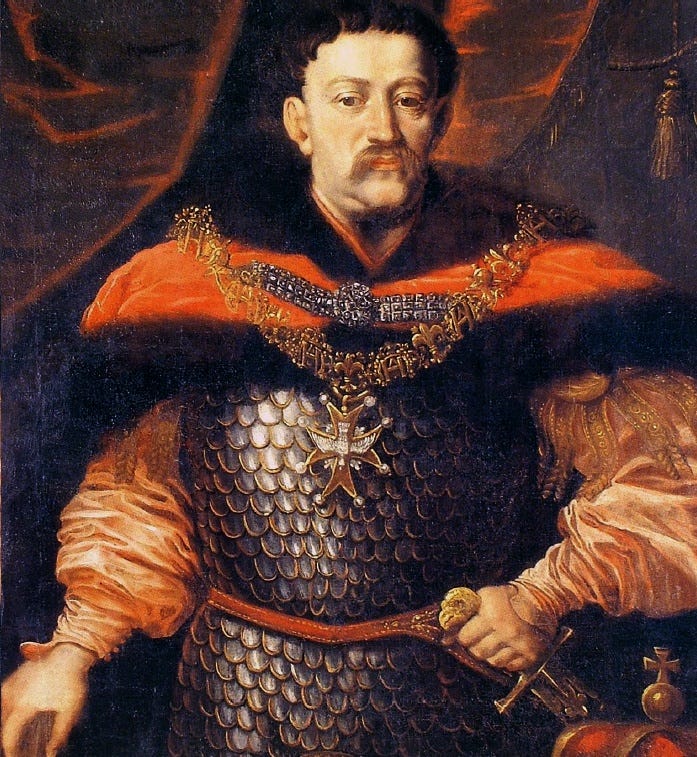
The Serbs fought under the very archetype of the warrior king, John III Sobieski, an imposing tower of muscle and bone who led his own troops into battle and sliced his enemies with a gigantic sword. This Sobieski, an alpha male if one ever existed, knew that he would make history, like none before him—unless it were Charles Martel, ‘the Hammer,’ who, at the Battle of Tours, in 732, had kept the Ummayad Muslims contained in the Iberian peninsula. To save the West. Sobieski organized a brilliant logistical operation and, in a mad rush, came charging from Poland on his famous hussars. And he shattered the Ottoman siege of Vienna.
Had Vienna fallen…
You can appreciate a little better now why the Battle of Kosovo of 1389 is so important to the Serbs. Yes, it is a painful memory, but that battle launched them on the world stage as heroes of the West, and it makes them proud. They do brood, however, on the solemn lesson: that perhaps Serbian freedom might have been preserved, back in 1389, if only unity had been more decisively achieved, and a good deal earlier. Because the Serbs did have it in them to stop the Turks, and soon after they would do just that in the Krajina or Military Frontier, and then at the gates of Vienna.1
The Serbs brood on this other lesson, too, which 500 years of slavery under the Ottomans taught them: if allowed to overrun the West, jihadists will destroy everything that is beautiful and good in Western civilization. This is the pedagogy of the Battle of Kosovo.
Milosevic’s speech on the 600th anniversary
Six hundred years later to the day, in 1989, before a gigantic Serbian audience gathered in Kosovo Polje (Gazimestan), at the very site of that storied medieval engagement, Slobodan Milosevic, an ethnic Serb and president of the Yugoslav Republic of Serbia, delivered a commemorative speech on the Battle of Kosovo.
Just how big was the crowd?
I will share a definite fact with you: the size of the crowd was sometimes reported as 1 million and sometimes as 2 million. The fact I allude to is this: such claims were made. I don’t know how big the crowd really was.
The reported numbers sound ridiculous. Can a crowd of 2 million really be assembled for a speech? Of 1 million, even? The Zeppelinfeld, created by Albert Speer for Adolf Hitler to hold his impossibly massive Nuremberg rallies, could hold perhaps 300,000 people, but only if tightly packed. And the photos of those rallies already seem insane.
Yes, Kosovo Polje is a field, but still: How to provide sound for one million people? For two million? (Food? Facilities?) It’s a field. There can be space enough for all those bodies, perhaps, but this is a public speech. And even if it’s technically doable (after all, what do I know?) the question remains: Who wants to foot the bill for something like that?
Moreover, the difference in the claims—sometimes 1 million, sometimes 2 million—is in itself absurd. This is not the variation you expect from ‘estimation error.’ Those are two entirely different crowd sizes.
But I think I can imagine what led to such out-of-control hyperbole: the shock of hyper-stimulus on the witnesses: more humans in the same place than ever before experienced, or indeed imagined possible.
What a sight…

Rising before this seemingly infinite crowd, this diffusely vibrating and living human ocean, Slobodan Milosevic took command of the lectern and leaned into the microphone that, in a thunder of echoes, would carry his voice to them.
What did he say? What was his message, on the 600th anniversary of the Battle of Kosovo, to what must have felt like the entire Serbian people?
According to Robin Cook, foreign minister of the United Kingdom,
“Milosevic used this important anniversary not to give a message of hope and reform. Instead, he threatened force to deal with Yugoslavia’s internal political difficulties. Doing so thereby launched his personal agenda of power and ethnic hatred under the cloak of nationalism. All the peoples of the region have suffered grievously ever since.”2 (emphasis mine)
This portrayal was typical (as we shall see in Part 5).
In this NATO version of reality, the Muslim and Croat secessionist movements that dismembered Yugoslavia were a response to Milosevic’s alleged warmongering of that day, and subsequently. Secession was morally imperative, they said, to save Croats and Muslims from getting slaughtered by these allegedly genocidal Serbs. So NATO intervened in favor of the secessionists for humanitarian reasons. Big Media, establishment academia, and powerful leftist human-rights NGOs all supported this official narrative.
In Part 1, I challenged this story by quoting the text of Milosevic’s 1989 Kosovo Polje speech.
As you can see for yourself, Milosevic did not promote “ethnic hatred under the cloak of nationalism.” He never “threatened force.” He was speaking before Serbs who had always thought of the Battle of Kosovo as the good fight for freedom against foreign oppression, not as some bigoted anti-Muslim crusade. Accordingly, Milosevic proudly recalled that “the Serbs have never in the whole of their history conquered and exploited others.” And he invited the giant multitude of Serbs in attendance to honor that legacy by leading all Yugoslavs, all cultures and creeds, toward “national tolerance, national cooperation, and even national equality.”
“Equal and united people can above all become a part of the civilization toward which mankind is moving. If we cannot be at the head of the column leading to such a civilization, there is certainly no need for us to be at is tail.”
—Slobodan Milosevic
Now, context is everything.
The Serbs hearing these inspiring and hopeful words about the common brotherhood of all Yugoslavs were, that very minute, concerned about attacks directed against minority Serbian peasants in Kosovo by the irredentist Albanian Muslim terrorists of the so-called Kosovo Liberation Army or KLA (or, in its native acronym—not an intended pun—UCK). These terrorists had announced their intention to ‘cleanse’ Kosovo of all remaining Serbs. I’ll have more on the KLA later, but I share this context because of what it suggests: that Serbian moral culture is most resistant to provocation: even under terrorist attack, what the Serbs heard from their leader on their most important national holiday was an exhortation to renew the brotherhood of all Yugoslavs.
This should remind you of the Jews, who agreed to participate in a peace process with the terrorists who’d been murdering them in Israel.
Speaking of Jews…
The Serbs, and the moral test of WWII
I told you in Part 1 about how the Serbs defended the Jews during World War II. This is a very clear and direct window—obviously—into Serbian culture, as no greater test of moral courage can exist than when you are called upon to resist and repel German Nazis for the sake of your fellow humans: Jews and Roma (Gypsies). Serbian culture passed this test with flying colors.
Indeed, no greater anti-Nazis can be found, anywhere, than the Serbs.
Even though Yugoslavia was completely surrounded already by Axis forces (except for its border with Greece), the proud Serbs deposed their own government when it dared to seek an accommodation with Hitler. And then they declared war on Nazi Germany.
And when the Nazis conquered Yugoslavia, the Serbs distinguished themselves as the only population in Europe to refuse en masse any cooperation with the antisemitic directives of the German-Nazi occupiers. Because they understood that Western civilization was once again in mortal peril, and they are the Serbs. The defense of the West is their national business. As warriors, yes, for there is a geographic boundary to defend, and when called upon the Serbs die for the West. But also as moral philosophers. Because the peril of Western civilization, the mortal risk to its soul, was that German Nazism brought with it a moral collapse comparable only to that of jihadism. And that moral collapse, the Serbs understood, was expressed in the collaboration of so many ordinary Westerners with the racist persecution of the Jews. They would not do it.
Peasant Serbs hid Jews in their homes and urban Serbs publicly protested antisemitic measures despite the risks to themselves in an especially brutal occupation. Meanwhile, Serbian Chetniks and Partisans fought in the valleys and hills against both Nazi invaders and the numerous Croat and Muslim allies of the Nazis. For their liberal, democratic, and humanitarian principles—a Serbian tradition—the Serbs risked and gave their lives (see Part 1).
Culture matters, and this is the culture of the Serbs.
The Serbs paid a gigantic price for their gallant heroism: more than a million were murdered in Croatian death camps or else by large divisions of jihadi Muslims that Hajj Amin al Husseini, founding father of the Arab Palestinian movement, recruited and trained for Heinrich Himmler’s SS.
But why did so many Yugoslav Croats and Muslims join Nazi-supported genocidal movements? Because that was their culture.
The Serbs are not the racists. Just consider: during WWII, though many Serbs were exterminated by the Croatian Ustashe, the Serbs chose a Croat—Josip Broz Tito—as their leader against the deathly triad of the Ustashe, Husseini’s Muslims, and the Nazis! Yes, the followers of Tito, the Croat, were mostly Serbs: initially about 90% of the Partisan movement, and never less than 70%.
Whether as Chetniks or Partisans, the Serbs won in Yugoslavia. But instead of seeking revenge, and believing still that the brotherhood of all southern Slavs could be reimagined and rebuilt, they supported Tito, when, seeking to recreate a united Yugoslavia, he proposed a widespread postwar amnesty for the criminal populations—a magnanimity that benefited especially his fellow Croats. In the recreated Yugoslavia, the Serbs supported a system that strove to balance the demands of the various ethnicities and religious communities.
Culture matters, and this is the culture of the Serbs.
The ignorance of Westerners, and the management of reality
If Westerners had known about the history of Yugoslavia, and had been familiar with the culture of the Serbs, they would have laughed out of court the notion that the Serbs (the Serbs!)—rather than the unreconstructed fascists whom they had magnanimously amnestied—had revived racist and genocidal violence in Yugoslavia in the 1990s. They never would have believed the nonsense they told us about Milosevic’s Kosovo Polje speech of 1989.
But Yugoslavia was not part of our education. In our vast ignorance about the Balkans, when they told us that the Serbs were the “new Nazis” and Milosevic the “new Hitler,” we just shrugged and nodded. It didn’t occur to us that the entire Western media, and almost all of Western academia, were representing the world precisely upside down.
Hence, when Washington Post ‘journalists’ such as Louise Branson and Dusko Doder told us that the democratically-elected Milosevic was a ‘tyrant,’ when they claimed that he’d harnessed the memories of the Battle of Kosovo to “rouse the crowd to new heights of nationalist delirium,” we believed them.

The lonely dissenting voices were heard only faintly, in small places.
One such voice belonged to T. William (‘Bill’) Carr, who, in 1995, even as the Yugoslav civil wars were raging, challenged the official story. Up next, in Part 3, I will consider, support, enhance, and correct Carr’s presentation.
PART 3: The civil wars in Yugoslavia and Milosevic's 1989 speech
US AND GERMAN BOSSES SUPPORTED NAZIS AND JIHADISTS IN YUGOSLAVIA
In Part 3 we examine how outside forces allied with Yugoslav terrorists among Croats, and Bosnian and Kosovo Muslims who wanted to tear Yugoslavia apart.
The Krajina peasant-soldiers, with Serbs among them in a strong majority, played a crucial role in the defense of Central Europe and, by extension, contributed significantly to halting the Ottoman Empire's expansion into Western Europe. Their efforts were a part of the broader resistance that ultimately helped protect the West from Ottoman conquest.
The Military Frontier (Krajina) was established by the Habsburgs precisely for this purpose: to serve as a buffer zone against Ottoman advances. The soldiers who settled in this region, known as Grenzers or ‘frontiersmen,’ were tasked with defending the empire from Ottoman incursions, which were frequent and sometimes devastating. These soldier-peasants engaged in countless skirmishes, raids, and defensive battles over centuries, often acting as the first line of defense against the Ottoman forces.
Their continuous resistance helped to:
Drain Ottoman resources – By forcing the Ottomans to commit troops to fighting a constant border war, the Krajina soldiers played a key role in wearing down the Ottoman military capacity.
Serve as a barrier – The Krajina acted as a physical and psychological barrier, slowing down or stopping Ottoman advances before they could penetrate deeper into Habsburg lands or reach Central and Western Europe.
Provide experienced warriors – The Krajina soldiers were seasoned fighters, familiar with Ottoman tactics. Their knowledge and combat experience contributed significantly to major engagements, such as the battles during the Great Turkish War (1683–1699), including the crucial Siege of Vienna in 1683.
While it’s true that the Battle of Vienna itself was won by a larger coalition of European forces led by King John III Sobieski, the continuous resistance provided by the Krajina soldiers created a fortified buffer that protected Central Europe over the long term. Without their contributions in defending the Habsburg Empire’s southern borders, the Ottomans might have had more opportunities to advance deeper into European territory, potentially changing the course of history.
In the larger collective effort that prevented the Ottoman dominance of Europe, the Krajina Serbs played the pivotal role, on the front line, in direct contact with the enemy.
‘STATEMENT BY ROBIN COOK TO THE SERB PEOPLE ON VID’S DAY (28/06/99)’; Foreign & Commonwealth Office; NEWS.


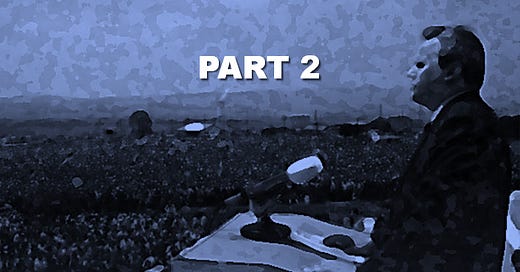




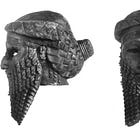
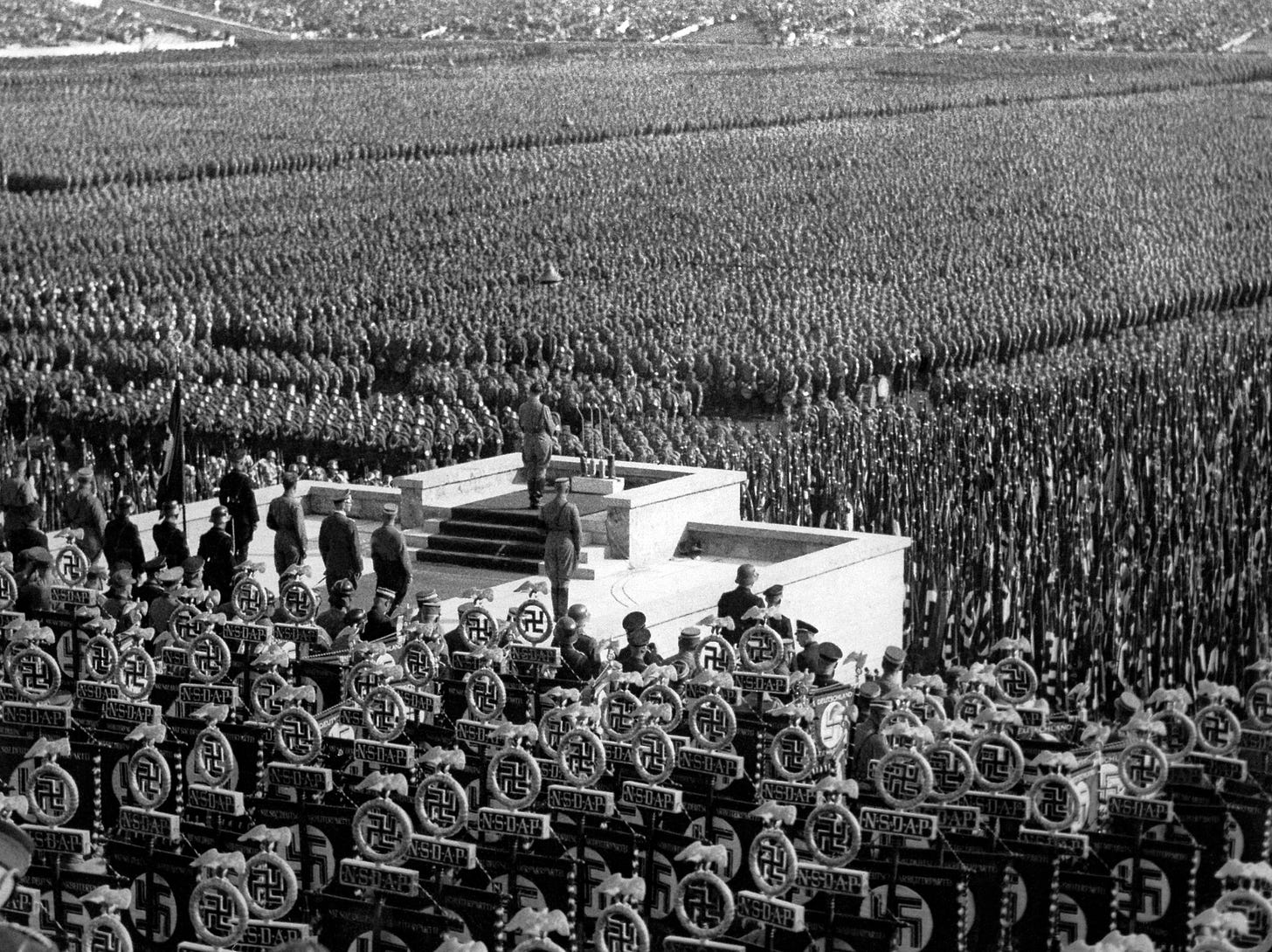
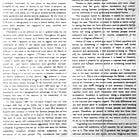


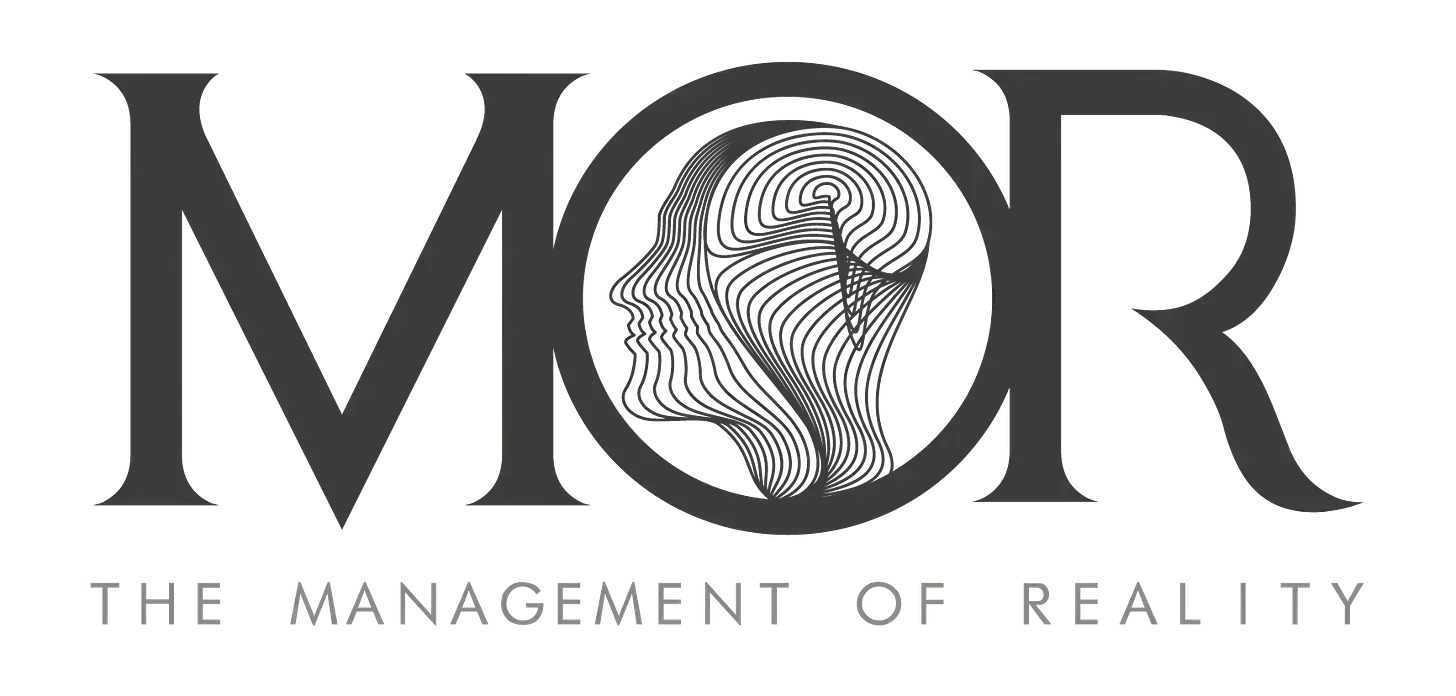
Wondering about the mystery why NATO and the West targeted Serbia?
With its gratuitous war of aggression against Serbia/Yugoslavia NATO ceased to be a merely mutual defense pact and arguably committed war crimes, including the supposed “crime against peace” invented during the Nuremberg trials. Oddly I found that the chair of my department, who had fled to Canada to avoid the draft during the Viet Nam War, approved of this aggression, saying there was some sort of “duty to protect. I have always marveled at the alacrity with which supposed peace-niks like Clinton and Obama who never served in our military, with which they have sent US. Troops to fight and die in wars of aggression. BTW I was the only conservative in our department.
Thank you Francisco!